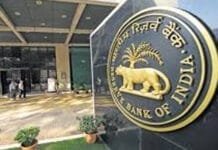SEBI Action Sparks Political Firestorm
In a development that has ignited both political outrage and investor anxiety, Congress leader Rahul Gandhi has launched a scathing attack on the Modi government, accusing it of allowing wealth concentration in the hands of a few elite players. His statement comes in the wake of SEBI’s (Securities and Exchange Board of India) move to ban American trading firm Jane Street Group for allegedly manipulating Indian stock indices through large-scale derivatives trading.
The regulatory crackdown—centered around index manipulation via the derivatives market—has spotlighted deep concerns about unregulated speculative trading, the erosion of investor confidence, and political silence in the face of financial malpractice.
Jane Street Group Banned: What SEBI’s Investigation Revealed
According to SEBI’s official order, Jane Street Group executed large trades in the cash segment on 21 expiry days spanning January 2023 to May 2025. These trades were reportedly part of a strategic play to influence stock indices by taking massive positions in Futures & Options (F&O) contracts—an alleged act of market manipulation that enabled the firm to reap windfall profits at the expense of retail investors.
SEBI’s findings indicate that Jane Street’s trading strategy disrupted fair price discovery mechanisms, skewed index movements, and corrupted the integrity of India’s financial markets. In response, SEBI has banned the firm from accessing the Indian securities market—an action which has brought into sharp focus the lack of timely regulatory oversight and the vulnerability of small investors.
Rahul Gandhi’s X Post: “I Warned the Nation in 2024”
Reacting swiftly to SEBI’s action, Rahul Gandhi took to social platform X, stating:
“I had clearly predicted in 2024 that the F&O market has turned into a playground for big institutional sharks, draining the savings of millions of small investors. Now, even SEBI acknowledges that Jane Street looted thousands of crores through manipulation.”
Gandhi emphasized that this episode was not an isolated case, but part of a systemic pattern wherein major financial actors exploit regulatory loopholes while the government remains a mute spectator.
Unanswered Questions: Rahul Gandhi’s Accusations Against the Centre
Gandhi raised several pointed questions that have now become a focal point of public discourse:
Why did SEBI stay silent for so long despite having data and transaction records?
Who are the other big players manipulating the market without consequences?
At whose behest did the central government “shut its eyes”?
How many retail investors have suffered losses due to manipulative practices?
He alleged that these manipulations are not being challenged because they serve the interests of the ruling elite, further claiming, “It is clear the Modi government is making the rich richer while throwing common investors under the bus.”
Massive Losses in F&O Market: Shocking Data Unveiled
Rahul Gandhi also reiterated his earlier warning from 2024, citing alarming statistics:
Unregulated F&O trading has increased 45 times in five years.
90% of small investors have lost ₹1.8 lakh crore in just three years.
Retail participants are ill-equipped to compete against algorithmic and high-frequency trading firms like Jane Street.
He demanded SEBI disclose the names of other major players benefiting from this opaque and predator-friendly market environment.
Retail Investors on the Edge: Market Becomes Hostile Territory
India’s retail investors—once heralded as the lifeblood of the stock market—are now increasingly at risk. As the F&O segment balloons, market dynamics have shifted from long-term wealth creation to speculative short-term bets. This high-volatility space, dominated by institutions, has become perilous for individuals lacking access to advanced trading tools.
Many believe SEBI’s move came too late, only after irreversible damage had been done. Retail investors, who entered the markets in record numbers post-COVID, have faced mounting losses, particularly in weekly expiry trades which have been gamified and exploited by professionals.
Call for Reform: Urging SEBI to Act With Transparency
Rahul Gandhi’s public stance has intensified pressure on SEBI to not only regulate but reform. He demanded:
Transparency in naming all entities found guilty of index manipulation.
A full audit of F&O market operations over the last five years.
Introduction of protective mechanisms for small investors.
Penal actions against complicit brokerage houses or trading platforms.
There is a growing clamor for SEBI to restructure the derivatives segment, implement position limits, and curb automated trading models that destabilize price formation.
Political Implications: A Battle of Narratives
This controversy is also taking a sharp political turn, with the opposition leveraging it as evidence of “corporate cronyism”. Rahul Gandhi’s attack aims to shape public perception ahead of critical political milestones, projecting the BJP-led government as a facilitator of elite enrichment.
The Congress leader’s position resonates with a large demographic of disillusioned retail traders, who feel ignored by regulators and used as exit liquidity by powerful players.
SEBI’s Road Ahead: Will Justice Be Done?
While SEBI has taken the first visible step by banning Jane Street Group, the credibility of the regulator itself is under the scanner. The key challenge now lies in whether SEBI will:
Launch comprehensive probes into other suspect entities.
Ensure legal accountability, including criminal prosecution where needed.
Release a full list of firms under investigation to the public.
Reinforce its role as a watchdog rather than a bystander.
Failure to act with urgency could cause irreparable damage to investor sentiment, both domestic and foreign.
Conclusion: Rising Demand for Accountability and Financial Justice
The allegations of index manipulation, the SEBI crackdown, and Rahul Gandhi’s bold accusations collectively mark a watershed moment in India’s financial and political landscape. As the lines between corporate power and government policy blur, public trust in markets hinges on accountability.
Investors, both big and small, now look to SEBI, not just for punitive action, but for structural reform. And the political establishment must acknowledge that safeguarding the retail investor is not just a regulatory duty—it is a democratic necessity.
















